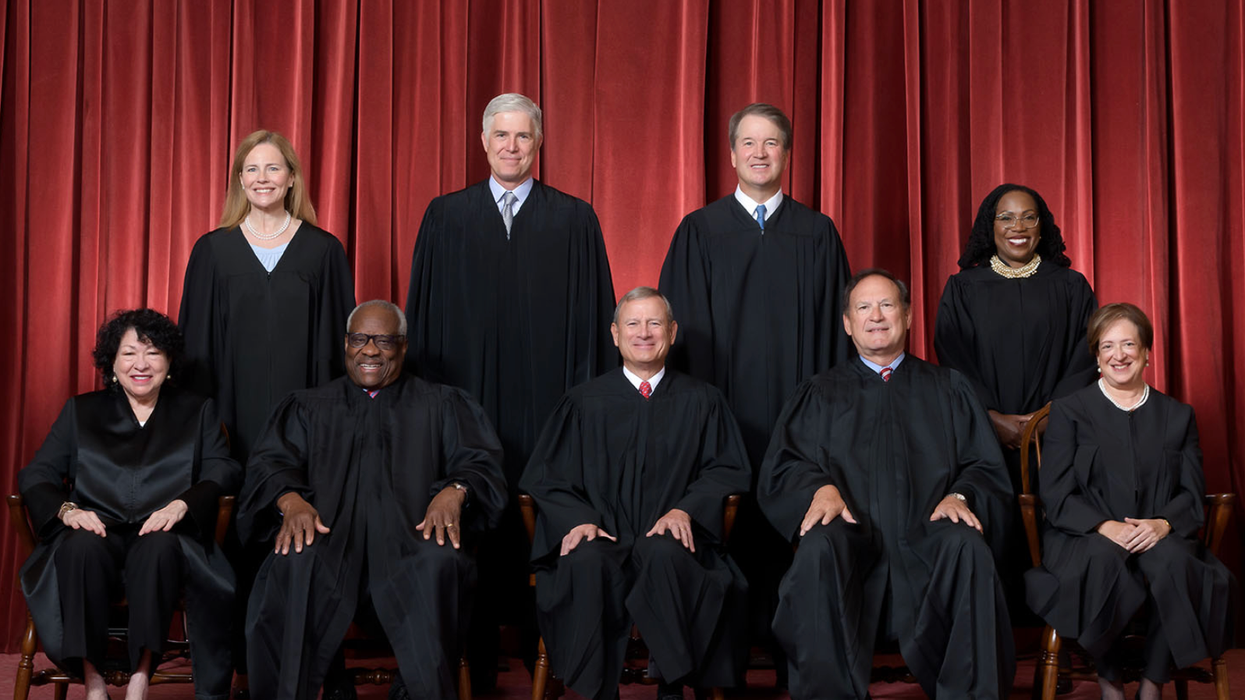Legal theory regarded as a 'gimmick' takes center stage in SCOTUS disqualification hearing

Supreme Court 2022, Image via Fred Schilling, Collection of the Supreme Court of the United States
February 08, 2024 | 11:53AM ETBank
On Thursday, the Supreme Court of the United States (SCOTUS) heard oral arguments concerning former President Donald Trump's disqualification from Colorado's Republican primary ballot. How the Court rules will ultimately depend on how seriously it takes a fringe legal argument Trump's lawyers are presenting.
During oral arguments, Trump's attorneys argued that as president of the United States, Trump wasn't technically an "officer of the United States" as defined by the US Constitution. They posited that the term "officers" instead refers to cabinet officials, judges and other presidential appointees. Justice Amy Coney Barrett, who is considered among the more conservative members of the Court, appeared to reject that argument on Thursday.
The New York Times reported that championing this particular theory has been a "hobbyhorse" of law professor Seth Barrett Tillman – who was born in the US but currently teaches at an Irish university — since he started exploring constitutional law.
READ MORE: Legal expert: SCOTUS should disqualify Trump given 'judicial conservatism' behind CO ruling
"My work is very unusual," Tillman told the Times. "If you try to hawk that or to sell that position in the United States, within legal academia, the opportunity of finding an audience is vanishingly small."
The Times reported that the legal community regards Tillman both as "eccentric" and "brilliant" despite the unpopularity of his constitutional interpretation. Yale law professor Akhil Reed Amar has previously dismissed Tillman's parsing of the word "officer" in the constitution as a "gimmick," but added that he is "one of the genuinely interesting people in our world," even though "the world hasn’t rewarded him very much."
Tillman's "officer" theory isn't his only unorthodox legal argument pertaining to the constitution: In 2008, he argued in a paper that regardless of who would eventually win the presidential election, both Sens. John McCain (R-Arizona) and Barack Obama (D-Illinois) could each serve as president while simultaneously keeping their respective US Senate seats. University of Chicago law professor William Baude wrote in 2016 that Tillman was known for making "exceedingly technical arguments combined with an almost urgent voice."
Trump was disqualified from the Colorado and Maine ballots in late 2023 for being in violation of Section 3 of the 14th Amendment (the "insurrection clause"). That clause states that anyone who participated in "insurrection or rebellion" against the United States, or who gave "aid and comfort to the enemies thereof," will be ineligible to hold any federal office, whether "civilian or military." SCOTUS could hand down its decision at any point before its current term ends in June.
READ MORE: Legal expert reveals how Trump's SCOTUS justices benefit by disqualifying him from ballot